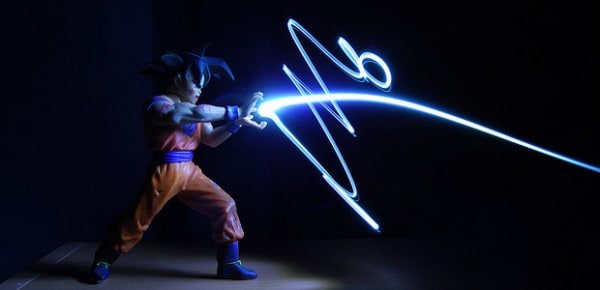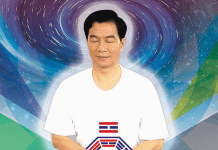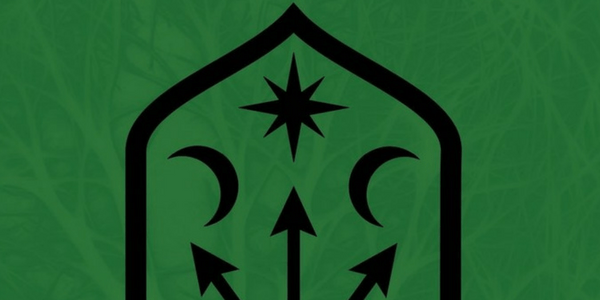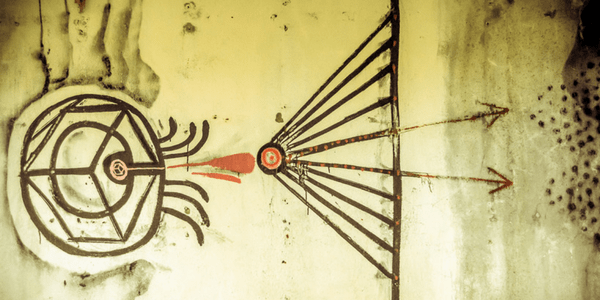Taylor Ellwood is the author several occult titles to date, and his latest work, Inner Alchemy, will be out later this fall.
This interview took place Saturday, May 20th, 2006 online.
Psyche: How do you define your spirituality these days?
Taylor Ellwood: My spirituality is defined in my drive to experiment and test the edge of magic and what it can do. My spirituality shifts as needed as I continue to experiment with a variety of paradigms and of course with the development of my own systems of magic. A large part of my spirituality is focused on internal alchemy and energy work, specifically working with the internal environment of the human body and consciousness.
P: How is this expressed in terms of your daily life?
TE: In my daily life I do a series of ritual workings everyday, primarily a combination of Far Eastern meditation, breathing techniques and some energy techniques I’ve developed on my own. However, my spirituality also expresses itself in my daily life through my boundless curiosity and interest in learning any and everything and applying it to my spirituality.
P: If you had to pin a label on it, what would you call it?
TE: *laughs* Oh that’s asking the impossible. Seriously if I were to give it and myself a label I’d just say experimental magician and my spirituality a label of experiment in progress.
P: Fair enough. How has pop culture influenced your work?
TE: Pop culture has influenced my work greatly, specifically because it is the contemporary culture I live in and I find it to be very rich and full of media and symbols and possibilities to play with. Pop culture was my initial foray into experimental magic and as such it still inspires a lot of my other forays into experimentation. I’d also say that pop culture, for me, is the embodiment of not just the contemporary world, but also an embodiment of where consciousness could take us, for better or for worse.
P: When did you first start working with it as a magickal paradigm, and what was it that got you started?
TE: I first started working with pop culture in 1998. I had watched an episode of Dragonball Z and I thought to myself that it was interesting to see some principles of energy work and magic expressed in an anime show, and I thought there might be some more potential in other pop culture artifacts, for example, with TV shows, comics, books etc. So, I decided to start applying principles of magic to pop culture and see what would and wouldn’t work. This particular experimentation picked up for me once I started co-writing my first book, Creating Magickal Entities. I decided that creating an entity based off a pop culture persona seemed like a good idea, and I discovered it was. The first pop culture entity I worked with, Miss Cleo, helped inspire my third book, Space/Time Magic.
P: It seems to have worked well so far. Who are your favourite pop culture icons to work with?
TE: Harry Potter and the rest of his ensemble, Harry Dresden (from the Dresden Files by Jim Butcher), Guan Yu from Dynasty Warriors (and The Three Kingdoms classical Chinese literature and an actual historical person to boot!), and as for the rest…just whatever happens to be contemporary pop culture. A lot of my pop culture work actually centres around Storm Constantine’s Wraeththu series and with god forms that she and I created for a system of magic called Dehar.
P: Could you explain more about Dehar?
TE: Sure, Dehar is based off of Wraeththu; the Wraeththu are hermaphroditic people who have basically succeeded humanity in Storm’s series. The Dehara are hermaphroditic godforms in this world, and the system of magic we created was basically a decision to take Wraeththu and make it into a viable system of magic with two reasons for why it would work: 1. Every world that is written about has it’s own existence and the writer has tapped into that existence and written about it. 2. The fan base supplies an energy of belief which helps to make that world more real and makes the characters come to life. Consequently they do have lives of their own and we can interact with that world through reading the books, but also through creating rituals that connect us to those characters.
The Dehara are such characters and we did rituals that basically involved creating and then getting to know and work with these godforms and figuring out their roles in the world of Wraeththu. As we continued to work with these god forms we found that they had more and more independence (as they were being fed by the belief other people had in them) and they began to direct us to some degree in the rituals we did and the kind of workings they wanted to perform with us.
P: What kind of workings were they interested in?
TE: Well, at first, the workings established a cycle of the year and specific holidays, creating as it were a calendar, but also a cycle to organize themselves and the world we were helping to create. Other workings involved mapping out different functions and duties that each Dehar had, as well as determining whether traditional correspondences would really work for the Dehar.
As an example, Lunil, who is a Dehar for one of the four directions, was associated with the element of Water. But as we worked with him, he told us that the association of passivity with water didn’t really fit him, that water for him was much more of an active force, as opposed to something still and deep. So, basically, as we were working with the Dehar they started to instruct us in how they existed and wanted to be represented.
P: That’s very nifty. I’ve never had servitors instruct me quite like that, it sounds quite unique.
TE: It is very unique, but similar to the egregore workings of Fotamecus and other entities that develop as more people put belief and energy into them. I also think it’s a result of deciding to create a structural working system of magic that is focused on explaining how that systems not just for people in the here and now, but also for characters in a world of fantasy that, in its own way, is just as real as this world is.
P: How would you respond to someone who questioned the validity of conducting magickal workings with figures from pop culture rather than the tried and true methods of old?
TE: Well, I’ve gotten a lot of criticism over the years from people on that matter. I’ve been told I’m reinventing the wheel, I’ve been told that it’s not real magic, etc. My thought is that magic is what you make of it. What’s tried and true for one person isn’t the same for other people. I know it isn’t for me. I happen to find the angelic correspondences for Hermetic magic to be something that just doesn’t work, but put in some pop culture characters and Hermetic magic works just fine for me. So my answer is that it’s really a case by case situation.
I think it is important for anyone to ground hirself in traditional approaches to magic, but also not be afraid to try out creating a new system of magic or substituting pop culture characters for more traditional characters. I also tell people that pop culture and tried and true forms of magic aren’t mutually exclusive, and that until someone tries the ideas out they really can’t judge whether it’s really reinventing the wheel or making that wheel better for your journeys.
P: The chaos magickian’s axiom: do what works.
TE: Yes, do what works.
P: How did your interest in chronomancy arise?
TE: My interest in chronomancy arose as a result of working with Miss Cleo. I had originally worked with her as an archetypal teacher of divination, but in my workings with her, she pointed out that there was so much more for me to explore beyond divination, and that divination was only the edge of chronomancy. Also, reading comics and reading the theory on comics helped get my interest up, because they actually talk a lot about the space/time dynamics of comics. The Watchmen by Alan Moore, issue 8 – that also got my interest up.
P: In what way?
TE: Well, in The Watchmen there’s a character who’s sense of time is radically different from normal people’s sense of time. Basically, he is aware of himself across all moments of time, and Alan Moore plays with this idea a lot in the comic, which gives readers an inkling of what that awareness would be like. For me, that gave me a sense that my consciousness is present in every moment I have lived in, do live in, and will live in, and in every possibility. So ,I decided to experiment with that idea through meditation and through playing with multimedia.
P: Kurt Vonnegut Jr.’s aliens in Slaughterhouse Five have a similar sense of time, they are aware of all moments in time, and choose to experience the moments they like. It’s a neat idea. How did your experiments work out?
TE: Well, I’m not insane, but doing those workings certainly put me on a very interesting edge when it came to my sense of self and working with the best possibilities I could manifest.
To put it another way, at one point I had done a meditation where I met various versions of myself and for one moment my perceptions weren’t limited to the version of myself that I am, but encompassed all of those versions, so I was basically, for one moment, every possible person I could be or had been or was currently being…It was very daunting.
My sense of time has changed in that I’m much more aware of how events and situations flow together as well as how to tweak a possibility into existence and change the flow in my favour.
P: Could you tell us a bit about your upcoming book, Inner Alchemy?
TE: Inner Alchemy is an exploration of consciousness within the body. Specifically, I deal with the idea that the cells in your body are conscious entities in their own right and have a life of their own. I consider what consciousness is and different states of consciousness. I also explore energy working, offering a perusal of a variety of different systems and what they offer people, but also offering some of my own techniques that I’ve been developing since 1995.
IA also is really about recognizing that you need to have respect for the temple of your body and your inner environment in order to fully appreciate the external environment you live in.
P: What are you working on right now?
TE: I’m working a variety of projects: I’m working on a pop culture grimoire, a sequel to PCM with some new explorations of pop culture magic, and I’m researching for the sequel to Space/Time Magic and Inner Alchemy
all rolled up in one. I’m also researching for a book on the literacy of magic and finally getting ready to co-write a book with my partner, Lupa, on kink sex magic.
P: Where do you see yourself five years from now? Or, in you case perhaps, where have you seen yourself?
TE: *laughs* Oh, I see a few more books published, and working on some new experiments. I have about three other books projects waiting in the wings that will likely be in the process of being written by that time. I also see myself continuing to lead a highly intriguing and fun life.
P: Who is the person who has most influenced you, and how?
TE: Well, you know, there are a number of people. Alan Moore (though I’ve never met him), William S. Burroughs, and William G. Gray in terms of writing and ideas of how to play with magic, experiment with it, and do multimedia exercises. In my personal life, Steven Savage, who introduced me to a lot of Taoist manuals on energy work; my best friend, Maryam, for showing me a lot about my own consciousness and how I manifest it for good or bad; and my mate, Lupa, who has provided me a person to work with, but also a person to trust. All of these people influence me a lot, not only in what I write or do, but in becoming the person I’d like to be.
P: What’s the best piece of advice you’ve ever given or received?
TE: Don’t be so serious, from Fenwick Rysen, and, you know, he’s right. It helps to laugh at yourself sometimes.
Taylor Ellwood can be reached via e-mail at taylor[at]spiralnature[dot]com. To find out more about his published material, check out the books page on The Green Wolf, or the website of his publisher, Immanion Press. Taylor is also on LiveJournal as ‘Teriel’.
First published on Suite101.com on 05 June 2006.
Image credit: Rob Walker









